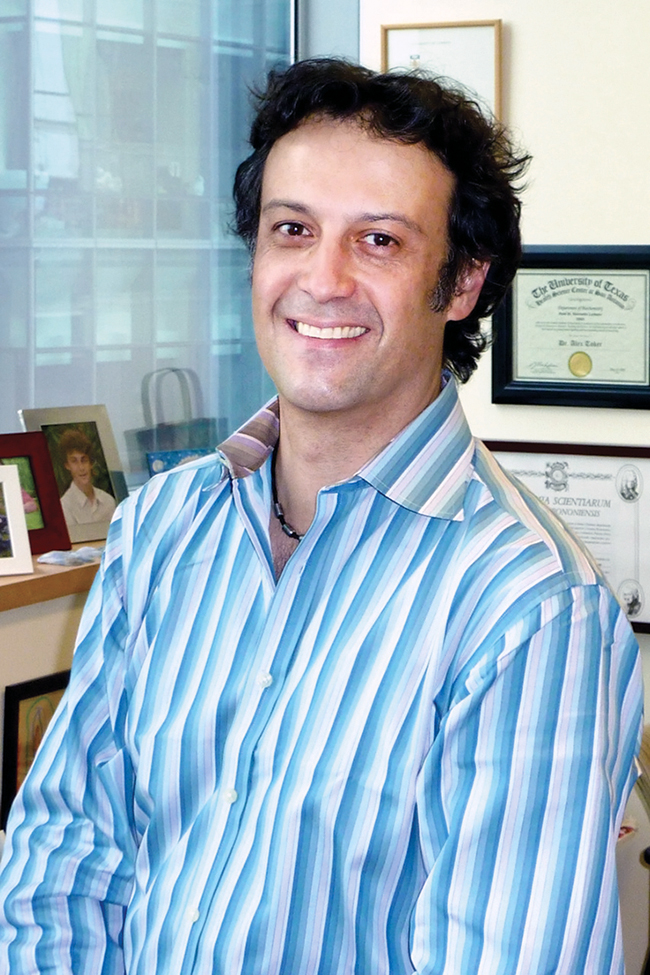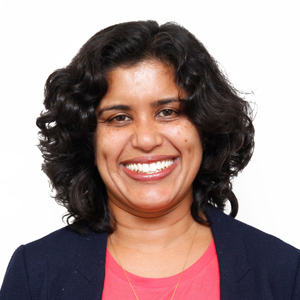Meet Alex Toker
Alex Toker at the Beth Israel Deaconess Medical Center and Harvard Medical School in January joined the ranks of the associate editors at The Journal of Biological Chemistry. Toker is a former chairman of ASBMB Today’s advisory board. His laboratory focuses on the cellular and molecular mechanisms of cancer progression. The interview has been edited for length and clarity.

Would you briefly explain what your research group is studying?
The work in our lab focuses largely on the cell and molecular biology of cancer progression, particularly breast and prostate cancer. For many years, we have been working on the phosphoinositide 3-kinase and Akt kinase signaling pathway and the mechanisms by which this signaling cascade promotes phenotypes associated with malignancy. We use a variety of approaches to study PI 3-K/Akt pathophysiology in cancer, from basic biochemistry and cell biology to developing and using mouse models of cancer. We are focusing on evaluating how the many genetic lesions that exist in the PI 3-K/Akt signaling pathway mediate cancer progression. We also evaluate new drugs that are being developed to target these enzymes for therapeutic benefit. Being a faculty member in a pathology department at a medical center also allows me to interact with clinical scientists and translate the findings from our discovery-based approaches to human pathophysiology.
Tell us about your academic background and research training.
During my childhood, we moved around a lot in mainland Europe, so I went to many different schools. But we finally settled in London, where I went to university and received a bachelor’s degree in biology from Kings College. Immediately thereafter, I embarked on a Ph.D. at the National Institute for Medical Research in Mill Hill (London), where I worked on 14-3-3 proteins, which were relatively obscure and out of the limelight at the time. After my Ph.D., I did what many postgraduates were encouraged to do at the time and sought a postdoc in the U.S.A. I settled on the laboratory of Lewis Cantley, who in 1991 was at Tufts University School of Medicine. But a year after joining the lab, we moved to Harvard Medical School and the Beth Israel Deaconess Medical Center.
I spent six very formative years in the Cantley lab, and it was during this time that my passion for basic research solidified. I joined the lab in the early 1990s, a few years after Dr. Cantley and his graduate student Malcolm Whitman had discovered PI 3-K. At this time, the enzyme was considered relatively obscure and perhaps an oddity in biology. But it was an extraordinary stroke of luck that I was able to do my postdoc in this lab and contribute in some way to discoveries of PI 3-K signaling. Today we know that PI 3-K represents one of the most frequently deregulated pathways in all human cancers and holds significant promise for targeted therapy. My own contribution was to identify the Akt kinase, one of the best-understood effectors of PI 3-K. Akt kinase transduces the signal by binding with high affinity to the PI 3-K lipids PtdIns-3,4-P2 and PtdIns-3,4,5-P3. The Science paper in which this work was published allowed me to move on and begin to establish my own independent laboratory, first at the Boston Biomedical Research Institute. In 2000, I was recruited back to the BIDMC in the department of pathology.
Did anything occur, in a milestone sort of way, that made you choose science as a career?
There was never a particularly strong scientific background in my family, but I do recall that back in the mid-1970s, when we had just moved to London, we lived very close to the Natural History Museum in Kensington. I vividly remember spending entire weekends there, usually by myself, exploring the many halls of dinosaur fossils, insects, meteorites and the whale room. I think it is fair to say that is where my interest in science started.
During grad school or postdoc, did something especially influence you to choose the path you’ve blazed in research?
My most formative years were as a postdoctoral fellow in Lew Cantley’s lab, and I learned an enormous amount about science and interacted with other colleagues. It was a scientifically exciting time, where I also learned the importance of establishing and working in an environment that is serious and fun at the same time. I also was impressed by a concept that I had never really fully appreciated but that was evident in the Cantley lab: The most profound and impactful scientific discoveries often are made serendipitously or because an error or control revealed something unexpected. Also, the freedom to pursue one’s scientific curiosity is something that I appreciated very early on and would have a very hard time giving up now.
What does it mean to you, on a personal level, to be an associate editor for the JBC? What was your reaction when you were asked to be an associate editor?
I was extremely honored to be asked to join the board as an associate editor. I recall my first paper as a postdoctoral fellow at Harvard was a JBC paper, which I was very proud of. The journal has a long history of being at the forefront of biochemistry, and many seminal discoveries in the 20th century were published in the JBC. It was very humbling to be asked. When (Editor-in-Chief) Marty Fedor wrote me with the invitation, I was delighted but also a bit concerned about what commitment it would entail. After a chat on the phone, she swiftly laid my concerns to rest, and I said yes on the spot.
How is the new role going so far? Have you been surprised by anything during your tenure with JBC?
It is going very well indeed. My concerns about an enormous workload have not really materialized, and I do find the number of manuscripts that I deal with to be quite interesting because of the broad range of subjects. Sometimes I will get a manuscript that is so outside my comfort zone that I am a bit worried. But the great thing about the board is its wide-ranging expertise and insight. I know I always will find just the right editors to review a paper. It certainly has presented a steep learning curve, but I now feel quite comfortable with the expectations placed on associate editors and would like to think I provide a fair and balanced assessment of papers.
What do you do outside of the lab? Hobbies? Do you have any advice for balancing life in the lab with life outside of the lab?
With three children, one of them 3 years old, and work, there is really little time or energy for many other activities. I do enjoy cooking and try to prepare something new or different whenever I can. I do think it is important to have at least one or two activities outside of the lab and science, whether those activities focus on family, sports or hobbies. My hobby, outside of spending as much time as possible with my kids, is music. I go to many live music shows in the Boston area, which, being a college town, is great with many venues. For the past 10 years, I also have been going to the Coachella Music and Arts Festival in the California desert in April, which allows me to escape from reality for a few days!
For scientists in training, do you have any words of wisdom or a favorite motto?
Take risks. The period of training is designed for just that — to take risks with your projects and do what is exciting, not mundane or safe. Choose an environment where that attitude is encouraged and not frowned upon. As for words of wisdom, there is a quote that I remind my lab of quite frequently, much to their chagrin. It’s from Earl Stadtman, one of the great biochemists of the 20th century, who famously said to his own trainees that “progress in science is directly proportional to the number of experiments you do.”
Enjoy reading ASBMB Today?
Become a member to receive the print edition four times a year and the digital edition monthly.
Learn moreGet the latest from ASBMB Today
Enter your email address, and we’ll send you a weekly email with recent articles, interviews and more.
Latest in People
People highlights or most popular articles

Building a career in nutrition across continents
Driven by past women in science, Kazi Sarjana Safain left Bangladesh and pursued a scientific career in the U.S.

Kiessling wins glycobiology award
She was honored by the Society for Glycobiology for her work on protein–glycan interactions.

2026 ASBMB election results
Meet the new Council members and Nominating Committee member.

Simcox wins SACNAS mentorship award
She was recognized for her sustained excellence in mentorship and was honored at SACNAS’ 2025 National Conference.

From humble beginnings to unlocking lysosomal secrets
Monther Abu–Remaileh will receive the ASBMB’s 2026 Walter A. Shaw Young Investigator Award in Lipid Research at the ASBMB Annual Meeting, March 7-10 in Washington, D.C.

Chemistry meets biology to thwart parasites
Margaret Phillips will receive the Alice and C. C. Wang Award in Molecular Parasitology at the ASBMB Annual Meeting, March 7-10 in Washington, D.C.

